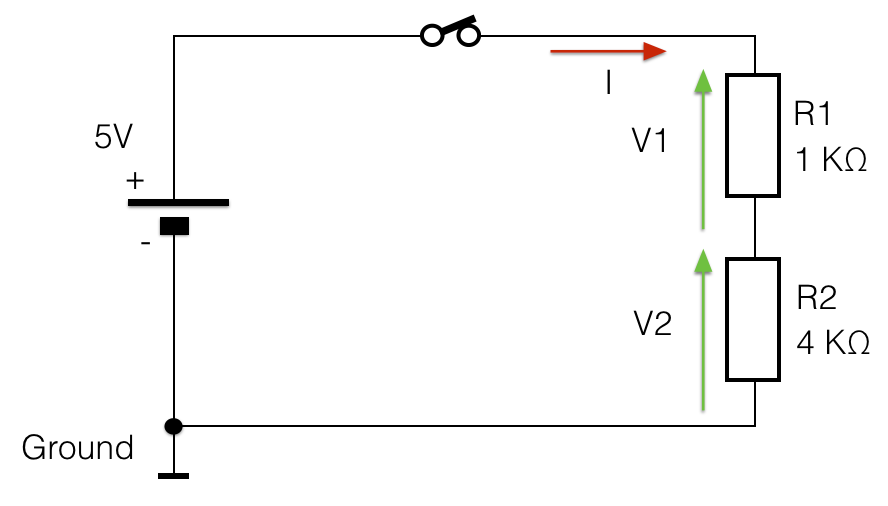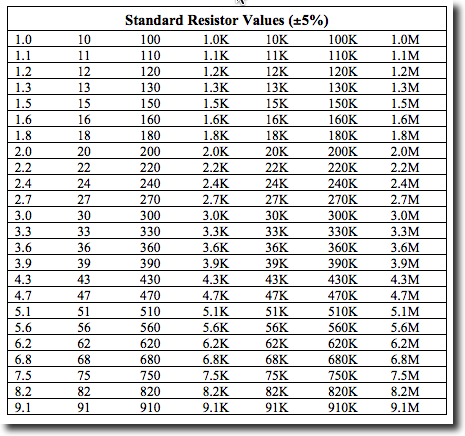Difference between revisions of "CSC270 Lab 3 2016"
(Created page with "--~~~~ ---- <center> =Electronics, Diodes, and Transistors= </center> <br /> ==Part 1: Ohm's Law== <br /> * Implement the circuit below on the breadboard. <br /> [[Image:CSC2...") |
(→Part 1: Ohm's Law) |
||
| Line 8: | Line 8: | ||
==Part 1: Ohm's Law== | ==Part 1: Ohm's Law== | ||
<br /> | <br /> | ||
| − | * | + | * For this part, you will implement the circuit below on the breadboard and you will measure V1 and V2 (see more information about the voltmeter below). Verify that V1 + V2 = 5 V and that V1/R1 = V2/R2. |
<br /> | <br /> | ||
[[Image:CSC270ResistorsSeries.png|600px|center]] | [[Image:CSC270ResistorsSeries.png|600px|center]] | ||
| Line 15: | Line 15: | ||
<br /> | <br /> | ||
[[Image:ResistorChartByValue.png|600px|center]] | [[Image:ResistorChartByValue.png|600px|center]] | ||
| + | <br /> | ||
| + | ===Measuring Voltages with the Agilent 34401A Voltmeter=== | ||
| + | <br /> | ||
| + | [[Image:AgilentVoltmeter.jpg|600px|center]] | ||
<br /> | <br /> | ||
Revision as of 14:53, 9 February 2016
--D. Thiebaut (talk) 14:43, 9 February 2016 (EST)
Electronics, Diodes, and Transistors
Part 1: Ohm's Law
- For this part, you will implement the circuit below on the breadboard and you will measure V1 and V2 (see more information about the voltmeter below). Verify that V1 + V2 = 5 V and that V1/R1 = V2/R2.
- You may not be able to find a 4 KOhm resistor, but most likely a 3.9 KOhm one. (See chart below, taken from ecee.colorado.edu/~mcclurel.
Measuring Voltages with the Agilent 34401A Voltmeter

